It’s hard to remember a time before cryptocurrency, before that fateful day in 2009 when the first Bitcoin transaction occurred. In just a few years, this has gone from a niche interest of a few techies to a trillion dollar industry. And crypto trading has exploded in popularity, largely due to the rise in value and popularity of the cryptocurrencies themselves.
“It’s a white-hot industry,” Yash Patel, a general partner at Telstra Ventures and avid backer of crypto innovation, told Built In earlier this year. “There’s just too much money at stake for anyone to ignore — investors and consumers alike.”
That’s not to say it’s gone without incident. In 2012, the price of Bitcoin dropped about 90 percent, and then dropped 80 percent in 2015 and 2019. We appear to be hurtling toward another recession now, and the cryptocurrency market appears to be following suit. But it’s important to remember, all markets have bull and bear cycles. Just because crypto is down right now, does not mean it’s out.
Top Crypto Apps to Know
- Binance
- BlockFi
- Circle
- Coinbase
- H2cryptO
- Kraken
- Paxos
- Robinhood
- Stack
Countless crypto apps have cropped up over the past several years, and many are continuing to grow. After all, this is a huge segment — everything from crypto wallets to NFT (non-fungible token) marketplaces fall under the umbrella. And that’s not to mention all of the play-to-earn games and other blockchain-based companies out there that make up the larger decentralized finance system.
In this roundup, we’re mainly going to focus on exchanges — the apps that facilitate the buying and selling of cryptocurrencies like Bitcoin, Ethereum, Dogecoin and thousands of others — as well as some wild cards.
But keep in mind: Unlike traditional brokerage firms, cryptocurrency exchanges are not members of the Securities Investor Protection Corp. This means that, unless user terms specify otherwise, investors with cryptocurrency assets commingled on a custodial cryptocurrency exchange stand to lose their funds as unsecured creditors. Plus, like any other investment, trading in cryptocurrencies, and any other digital asset comes with its fair share of risks, as the markets can be extremely volatile.
Crypto Apps to Know
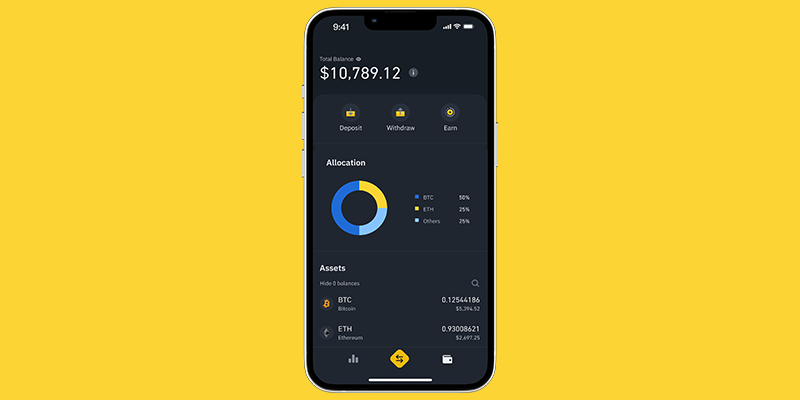
Binance
Binance is one of the most familiar faces in the world of crypto, claiming to have the largest digital asset exchange by volume. In addition to educational resources, savings accounts and even NFTs, the company has its very own custodial crypto wallet that allows users to trade in more than 600 cryptocurrencies like Bitcoin, Ethereum and Dogecoin. It also has its own stablecoin through a partnership with crypto asset exchange Paxos, which hit a market capitalization of $90 billion last year.
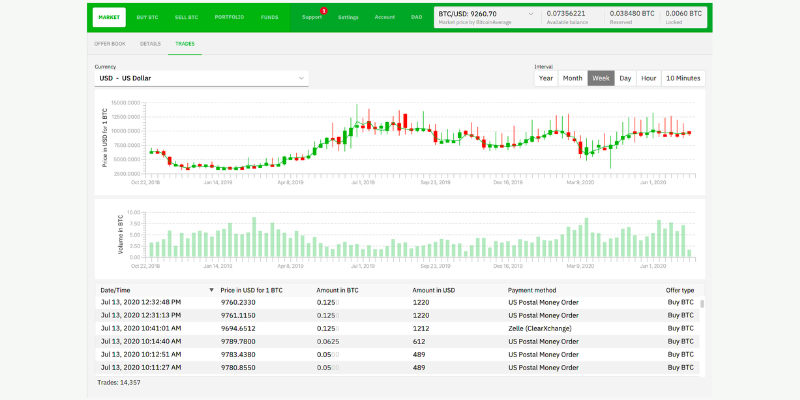
Bisq
Supporting more than 100 digital assets, Bisq is an open-source cryptocurrency trading app that helps people around the world trade cryptocurrencies and tokens. The buying and selling happens on a peer-to-peer basis, and can be done using a variety of payment methods, including cash deposits and bank wire transfers. All user data is stored locally on-disk, not on a central server, and there is no identity verification required to use Bisq — making the app uniquely private and easy to use.
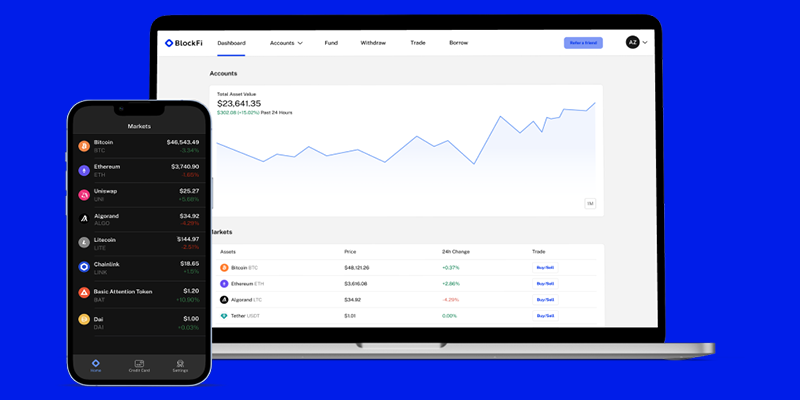
BlockFi
BlockFi’s platform provides everything from crypto-backed loans, to crypto wallets and trading accounts, to a crypto rewards credit card — the first of its kind, according to the company. Like many other companies in this space, BlockFi has hit some rough water recently. After taking its valuation from $3 billion to about $5 billion in a matter of months last year, the company is now valued at less than $500 million, according to a leaked investor call. And CEO Zac Prince announced the company will be reducing its headcount by “roughly 20 percent,” making it just one of at least a dozen major tech firms to make significant cuts to their staff and freeze hiring efforts in the last several weeks.
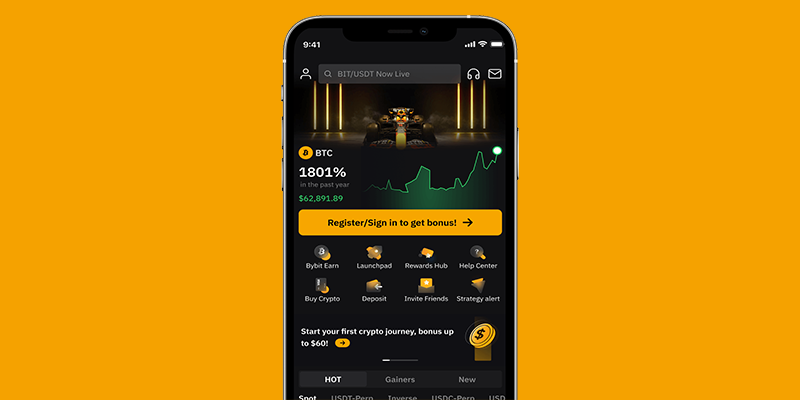
Bybit
With more than 5 million users and 100 million assets, Bybit aims to be a “one-stop crypto destination.” Its app offers liquidity mining and staking products, an NFT marketplace, as well as stablecoin-margined options contracts. Bybit also has a charity product, which allows users to donate Bitcoin and other cryptocurrencies to their choice of hundreds of nonprofits from around the world.
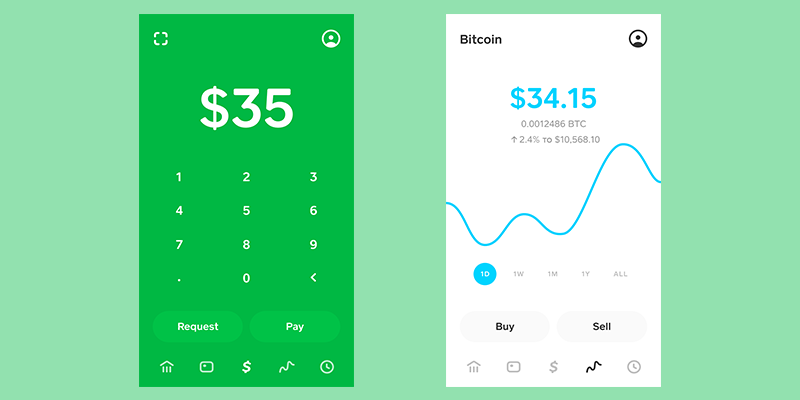
Cash App
Although Cash App isn’t always considered to be in the crypto universe, it is actually a popular way to invest in Bitcoin. Plus, unlike its contemporaries like Venmo and PayPal, the app also lets users withdraw their Bitcoin to third-party wallets. The company was launched back in 2013 by Jack Dorsey’s Square, which has since changed its corporate name to Block in an effort to expand beyond its popular credit card-reader origins and into blockchain technology. Dorsey also announced earlier this year that Cash App has started to roll out support for the Bitcoin Lightning Network to allow for cheap, near-instant Bitcoin transfers.
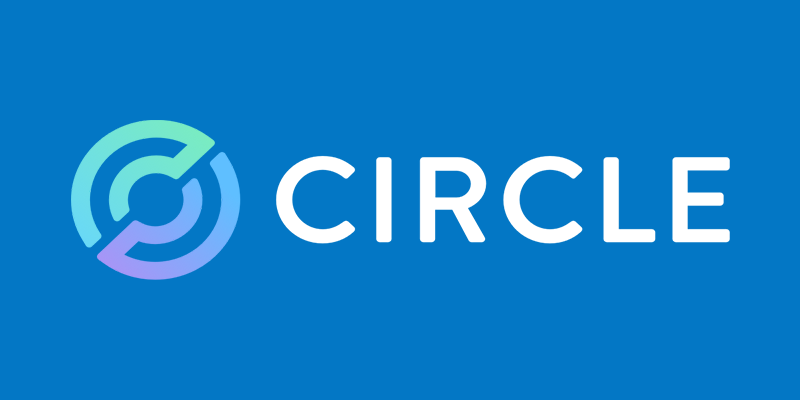
Circle
Circle is a fintech behemoth, helping nearly 10 million retail customers worldwide implement crypto into their payments, commerce and financial applications. And its Circle Invest app helps users buy and sell Bitcoin, Ethereum and other cryptocurrency. The company is also known for its stablecoin USD Coin (USDC), which it launched with crypto giant Coinbase back in 2018. Since then, Circle has gone public through a $4.5 billion merger with special purpose acquisition corporation Concord Acquisition, and USDC is poised to become the market’s leading stablecoin as rival Tether continues to struggle.
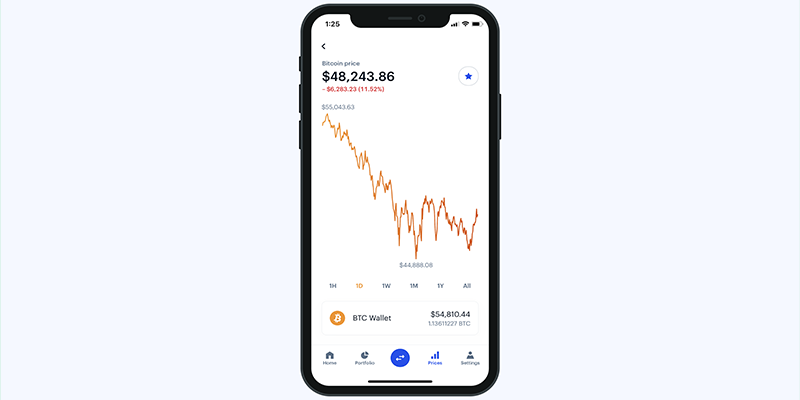
Coinbase
Founded in 2012, Coinbase is among the older crypto apps on the market today. Known for its large selection of cryptocurrencies and high level of security, the app was recently named the best crypto exchange for beginners by Investopedia. Coinbase also offers an advanced trading platform called Coinbase Pro, which is better suited for professional traders. The company made its Wall Street debut last year at a whopping $85 billion valuation, but unfortunately, it has also fallen victim to this recent economic downturn, and had to lay off more than 1,000 of its employees to prepare for an impending “crypto winter.”
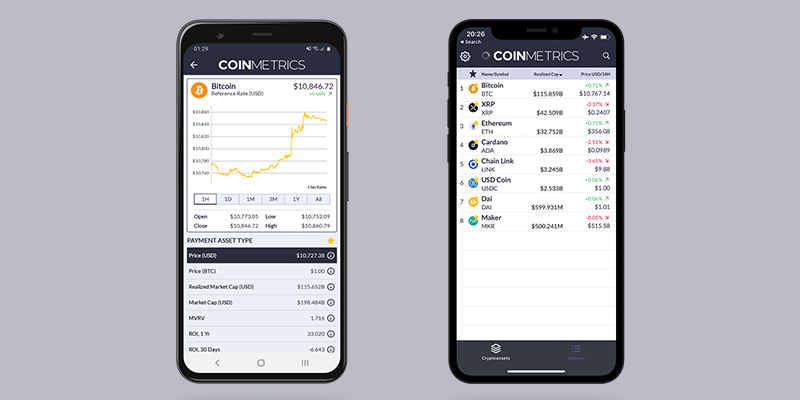
Coin Metrics
Coin Metrics’ real-time crypto asset pricing and relevant on-chain data are meant to ensure that crypto traders are armed with the most accurate and up-to-date information. Users can browse the current price, 24-hour price change and realized capitalization for more than 60 different crypto assets, and then check out one-day, one-month, one-year and even all-time price charts for each one.
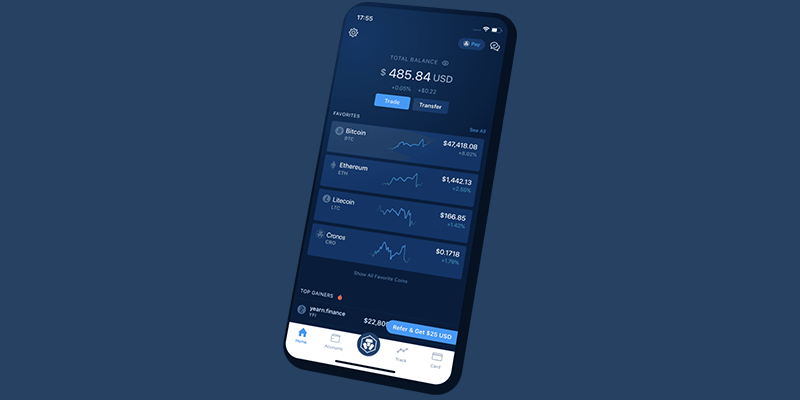
Crypto.com
Crypto.com claims to be the world’s fastest growing crypto app. In addition to offering a large collection of supported assets, it also provides a vast digital asset ecosystem composed of its own blockchain, a DeFi wallet, an NFT marketplace, a native token called CRO and its own crypto Visa card.
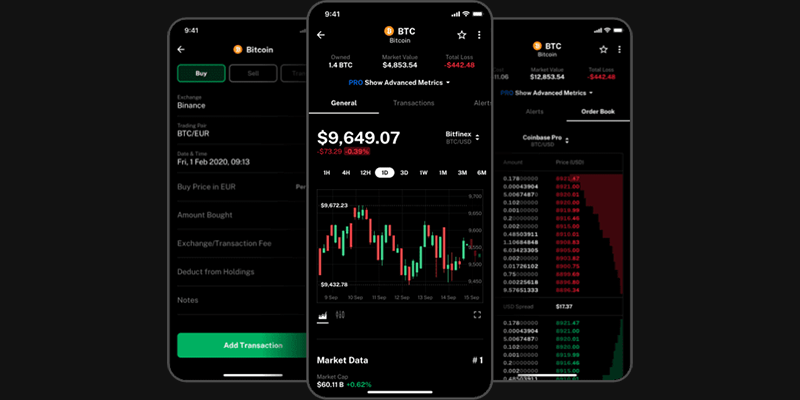
Delta
The Delta app works as an all-in-one investment tracker, providing a way for users to manage and track their various assets, from stocks and funds to cryptocurrencies and NFTs. The company also created the Delta Direct service to provide users with transparent, up-to-date information on specific cryptocurrencies directly from the teams that create them.

eToro
Acting as a sort of social media platform for crypto trading, eToro allows users to connect with and copy from top investors in the space. People can use the app to invest in traditional stocks and exchange-traded funds, or ETFs, as well. It’s worth noting, however, that eToro is not available in all 50 states.

Flipside Crypto
Flipside Crypto aims to be a source of education for novice crypto traders to learn, collaborate and solve data challenges. The platform analyzes blockchain networks through a technique the company calls “chainwalking” in order to understand the impact of on- and off-chain activities. The data is all free to access, and can be used to help users complete data analytics challenges. In return, they can earn monetary compensation in the form of “bounties.” Flipside recently closed on a $50 million funding round, and plans to grow its headcount by 85 percent by the end of this year, according to the company.

H2cryptO
H2cryptO claims to be the world’s first cryptocurrency exchange to offer 24/7 customer support 365 days a year, guiding investors throughout their trading journey so that the space is less intimidating. Although crypto is a buzzy corner in tech right now, the amount of people actually participating in it is still relatively small — a fact H2cryptO’s founder and CEO George Kushner attributes to the “chunky,” “clunky” and “cumbersome” nature of the industry. “Our objective is to really bring cryptocurrency to the masses via broad adoption, through education, account setup and know-how,” he told Built In.
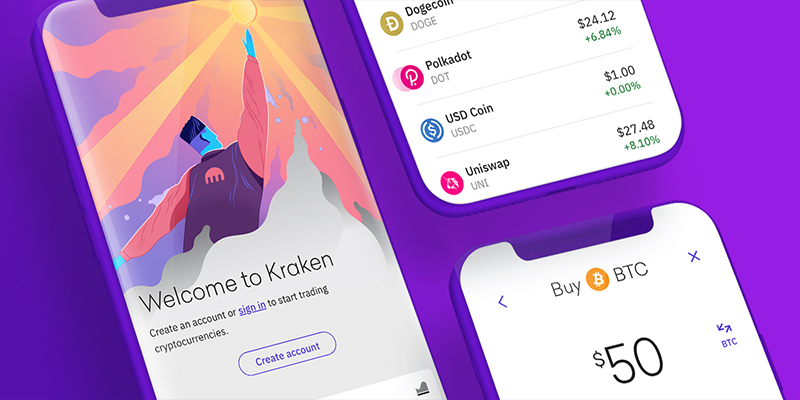
Kraken
As the first Bitcoin exchange to have its trading price and volume displayed on the Bloomberg Terminal, Kraken is one of the most reputable digital asset exchanges in the world. Launched in 2011, the app established itself as a go-to place for professional investors in the early days of the crypto market, and it has been growing steadily ever since. Today, Kraken trades in Canadian and U.S. dollars, Japanese yen and British pounds, and claims to be the largest Bitcoin exchange in euro value.
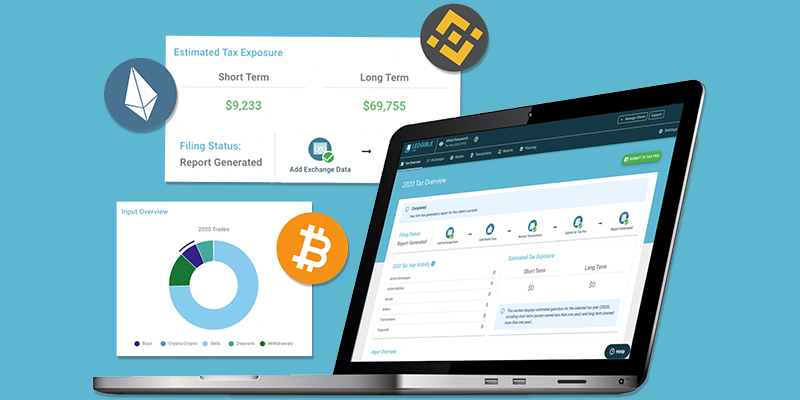
Ledgible
As cryptocurrency continues along the path of mass adoption, so too does the importance placed on adequately accounting for it as an asset and source of income. But the very nature of crypto makes it difficult to fit into the larger constellation of traditional finance, which means it is a pain to deal with come tax time. Ledgible aims to solve that, integrating with several blockchains and crypto wallets, as well as professional accounting tools like Intuit and FIS, in an effort to bridge the gap between these two financial sectors. The company recently closed on a $20 million Series A, and is in the midst of expanding its product offerings.
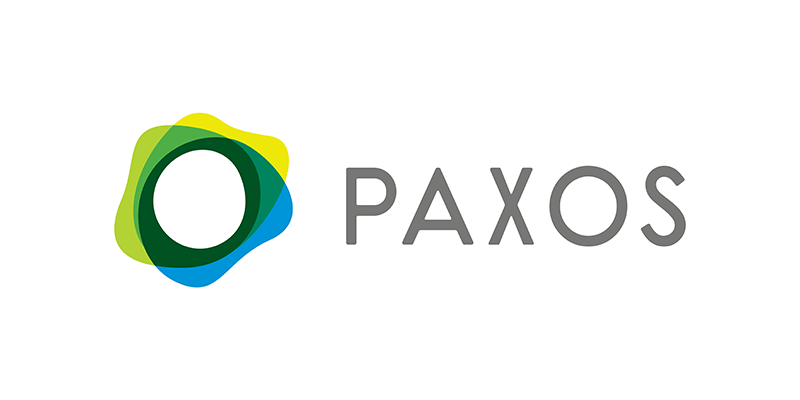
Paxos
Valued at more than $2 billion, Paxos owns and operates the first fully regulated crypto asset exchange on the market. The company works with major financial institutions like PayPal and Revolut to digitally move assets like money and commodities, as well as cryptocurrency, around the world safely and instantaneously. It also has two popular stablecoins — Pax Dollar and Pax Gold.

Robinhood
The Robinhood app facilitates commission-free trades of stocks, ETFs and cryptocurrencies, and is often credited as being among the first companies to gamify the investment space. It is also one of the few places where you can trade cryptocurrencies for free, making it appealing to newcomers who want to get their feet wet.
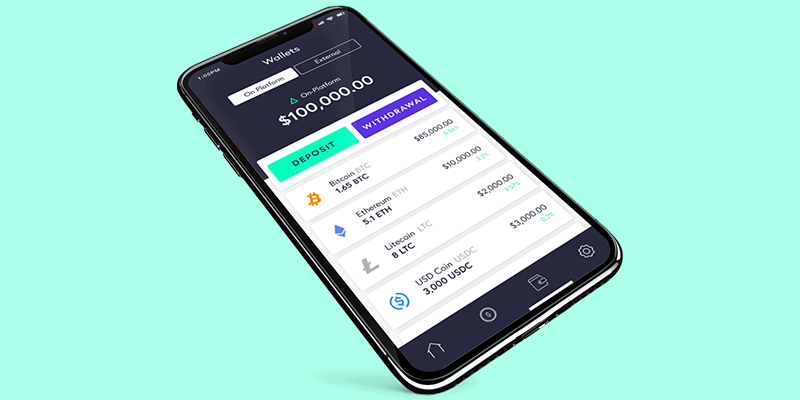
SALT
The SALT lending platform allows users to leverage their cryptocurrency for cash loans, providing them with a way to access cash without having to sell off their digital assets outright. Borrowers can lock into cash loans ranging from one month to three years, and get loans as large as $5,000. The app is available in the majority of United States and in many other countries around the world.
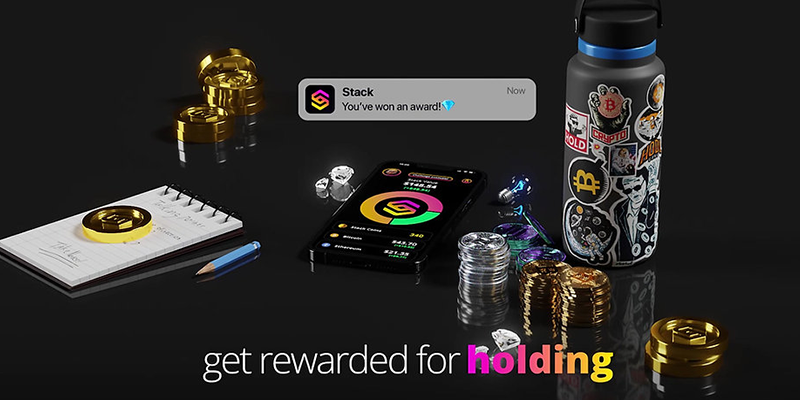
Stack
Stack is a crypto exchange designed specifically for teens. Through a mix of gamification and education, the app aims to be a place where young people can buy and sell popular crypto coins while learning about financial literacy. “It’s a lot about making very compelling educational content through gamification,” co-founder and CEO Will Rush told Built In. (Meanwhile, Stack isn’t the only startup that wants to introduce crypto investing to kids. Teen-focused online banking app Copper recently announced it is expanding into the space after it raised $29 million of fresh funding.)
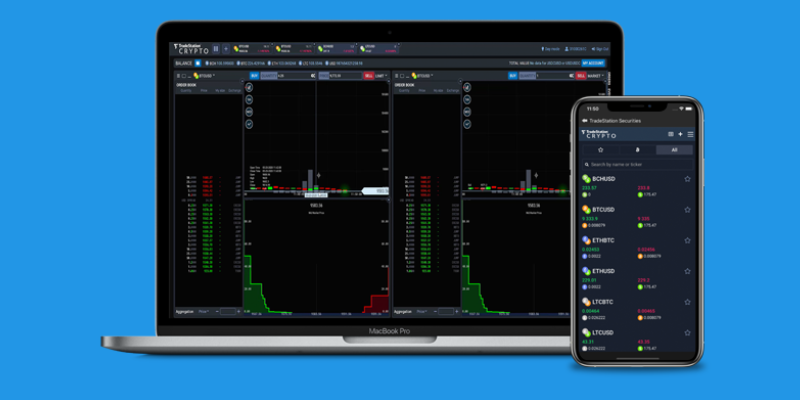
TradeStation
TradeStation’s high-powered trading capabilities, zero-dollar trade commissions and a wide range of tradable securities, including cryptocurrencies, make it a go-to app for experienced investors. It also offers a comprehensive suite of free and premium educational resources and research tools.
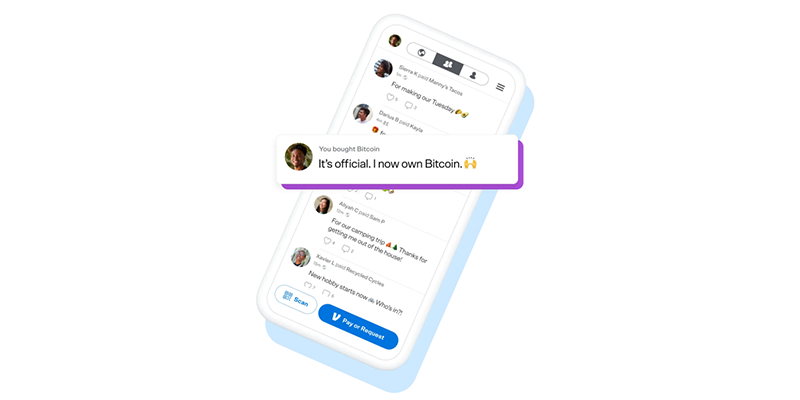
Venmo
Although it is perhaps best known as a money transfer app, Venmo also allows for the buying and selling of cryptocurrencies, joining similar companies like PayPal and Cash App. But, unlike its counterparts, it gives a choice of four major coins: Bitcoin, Ether, Bitcoin cash and Litecoin.
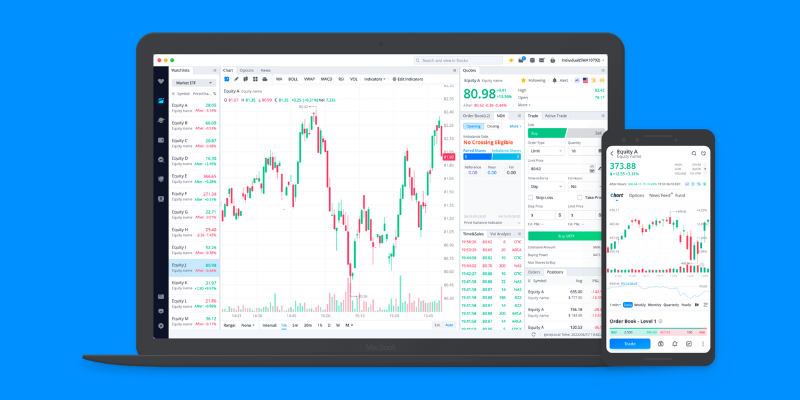
Webull
With no commissions or deposit minimums, Webull is an appealing app for investors of all stripes. Users can trade traditional assets like stocks, options and ETFs, as well as digital currencies like Bitcoin, Ethereum, Dogecoin and Litecoin. The app also provides real-time data and customizable charts so that users can keep up with the crypto market at large.




